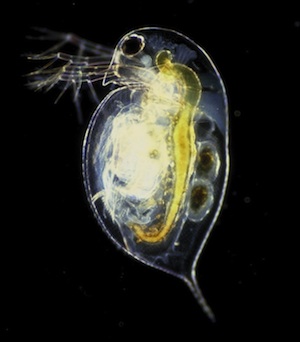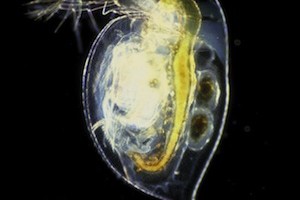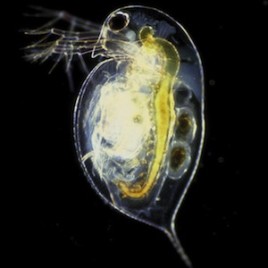
Female water fleas (Daphnia pulex) can reproduce without males (asexual reproduction), but some populations produce males anyway. Asexual populations of water fleas were predicted to dominate over sexual ones, but a new study shows that this takes a long time, indicating that there are short-term benefits to sex as well as long-term ones. (Photo credit: Paul Hebert)
A long-term study of water fleas – tiny lake-dwelling crustaceans – has shown that there are short-term benefits to sexual reproduction as well as long-term ones. Most water flea populations only produce females (asexual reproduction) but some produce a mixture of males and females.
Sex leads to higher genetic diversity, which can help the species adapt to long-term changes, but the fact that asexual populations have more offspring per generation predicts that in the short term, they should outcompete the sexual populations.
An 18-year study has shown that that isn’t the case, suggesting that other factors, including the proportion of eggs saved for tough times, impacts the competitiveness of the asexual populations.
Original research paper published in the Proceedings of the Royal Society B: Biological Sciences on June 17, 2014.
Names and affiliations of selected authors

